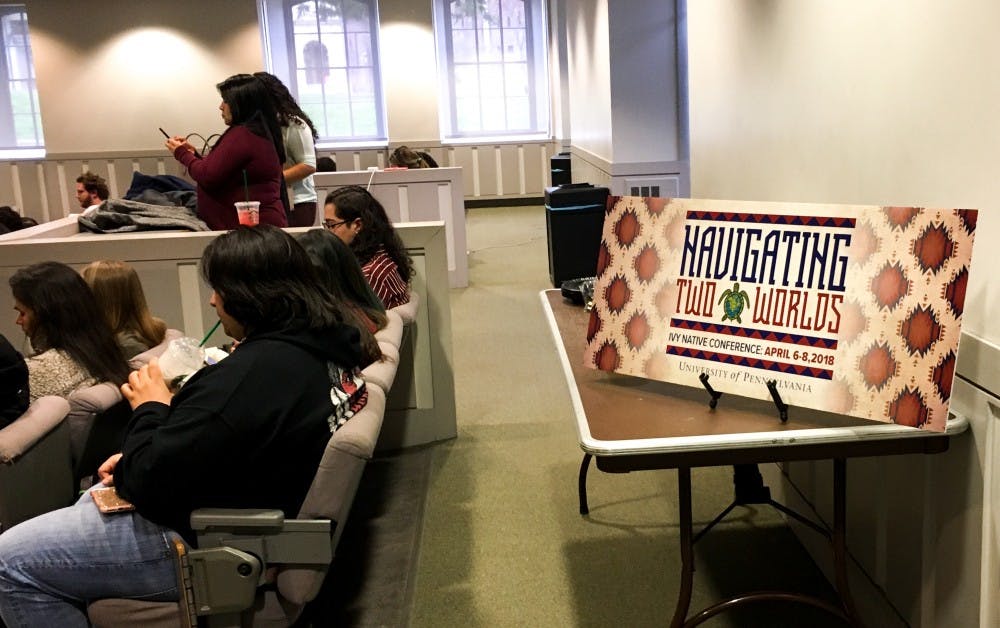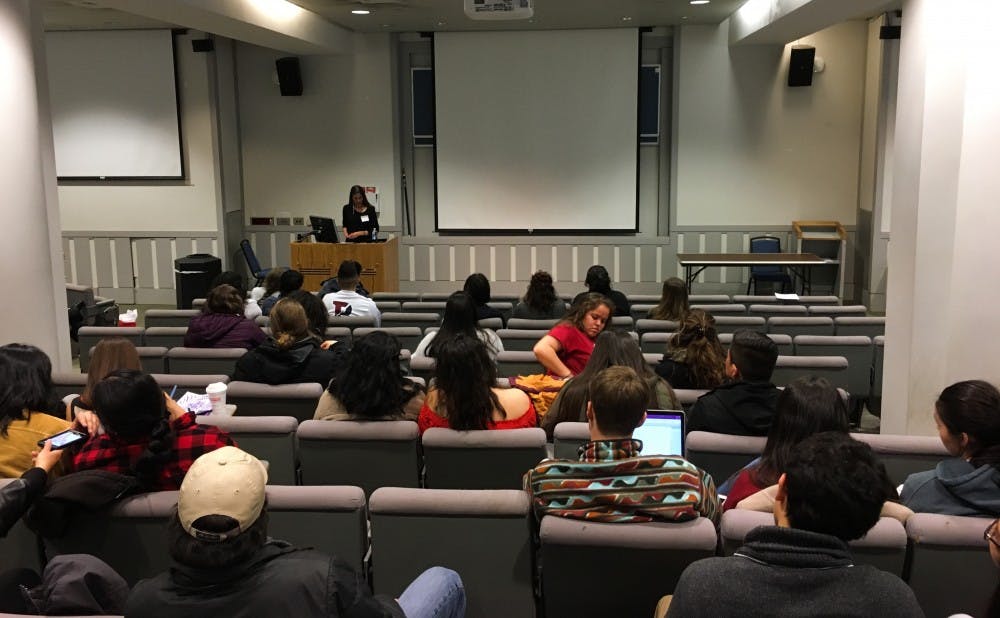
The student organization Natives at Penn hosted the biannual Ivy Native Conference this weekend for the first time since 2013, drawing in students from across the country and beyond.
At the conference, which was centered around the theme "Navigating Two Worlds," students and invited speakers discussed the barriers that Native Americans face in higher education. Some talked about the challenges of preserving traditional practices at college while others brought up the pressure of feeling like "cultural translators" for Native American culture.
The Ivy Native Conference brings together about 100 Native American students from numerous institutions every year, including those in the Ivy League as well as New York University, Georgetown University, and McGill University in Canada. The Ivy Native Council, an organization for Native American students across the Ivy League, organizes the conference once every semester at a different Ivy League school.
“I think it is really important that Natives in higher education are able to come together and talk about the issues that we face," Natives at Penn Chair and Nursing senior Keturah Peters said. "I think it is important we all come together from different institutions and talk about different problems and concerns and challenges we've had from our institutions from being Native American."
Peters added that the Native American population at Penn is small, and many Native American students are first-generation as well.
“The Ivy Native Council Conference I think [is] a pretty amazing organization that brings in so many different indigenous students together,” Ivy Native Council chair and Princeton University student Zoe Toledo said.
Since Natives at Penn is a small group, Peters said hosting the conference was difficult, as the group had to prepare logistics and decide on this year's theme.
“Our theme is 'Navigating Two Worlds.' We wanted to focus on how students navigate higher education and how they transfer their skills to their community," Peters said. The conference's speakers were invited to share the barriers that they have faced as Native Americans.
"Some barriers focus on financial barriers, coming from rural areas to more urban areas and leaving their communities," Peters said.
The speaker events discussed Native American culture and the struggles Native Americans have faced.
One speaker, Rebekah Horsechief, talked about her struggle with the expectation of being a "cultural translator" for Native American culture and the pressure of others assuming that a Native American student can speak for all Native Americans.

Another speaker, 2011 College graduate Megan Red Shirt Shaw, talked about the struggles she faced at Penn as a undergraduate, including her efforts to restart Native American traditions such as the annual powwow and feelings of isolation because of the lack of Native American students on campus.
“One of the unique things is that I get to meet people [from] all across the United States. The theme of this conference is particularly special and relevant to all of us in this room. There has been a lot of great discussion among small and large groups and how we all confront these challenging things,” McGill University student Aneeka Anderson said.
“What is pretty miraculous during this social interaction [is] that you hear a whole plethora of Native languages and different tribes are mentioned and you can see such great visibility. The visibility of Native students, Native presence, Native scholarship, and Native issues," Toledo added. "We are a very diverse community and the issues that face Native people are also broad."
Many of the attendees noted that this conference acted as a way for them to connect to their own culture and meet people who share similar backgrounds, especially since the Native American populations are small in their own respective schools.
Peters agreed on the importance of visibility that the conference brings.
“Penn doesn't recognize it enough that we are on Lenape Land, which is the tribe of this area and New Jersey as well. It would be insightful for other people to hear Natives' experiences since we don't have a large population here," Peters said. "A lot of us face the same issues, coming from minority communities, underrepresented communities. We face a lot of the same challenges.”
The Daily Pennsylvanian is an independent, student-run newspaper. Please consider making a donation to support the coverage that shapes the University. Your generosity ensures a future of strong journalism at Penn.
Donate







